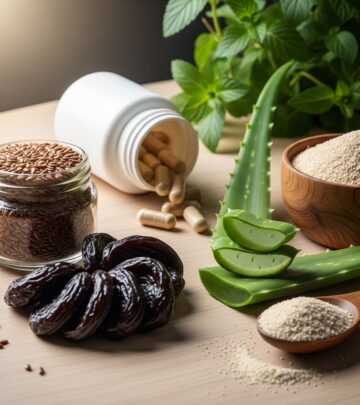Soothe the Pain: Home Remedies for Toothaches
Discover natural and effective ways to alleviate toothache pain

Introduction to Toothache Home Remedies
A toothache can be a painful and frustrating experience, often requiring quick relief. While these remedies may not cure the underlying cause of a toothache, they can provide effective temporary relief. Here, we explore some of the most common and effective home remedies for toothaches.
## Effective Home Remedies for Toothaches 1.
Saltwater Rinse
A saltwater rinse is a simple yet effective remedy for toothaches. It acts as a natural disinfectant, helping to reduce inflammation and loosen food particles stuck between teeth.-How to Use:
Mix ½ teaspoon of salt in a glass of warm water. Swish the solution around in your mouth for about 30 seconds before spitting it out. Repeat as needed throughout the day. 2.Clove Oil
Clove oil contains eugenol, a natural anesthetic that can help numb the area around an aching tooth. It also has antibacterial properties, making it a powerful tool for relieving tooth pain.-How to Use:
Dilute a few drops of clove oil with a carrier oil (such as olive or coconut oil). Soak a cotton ball in the mixture and apply it directly to the painful area. Alternatively, gently massage the oil onto your gums. 3.Cold Compress
A cold compress is particularly helpful if your toothache is due to trauma or swelling. It numbs the area and reduces swelling by constricting blood vessels.-How to Use:
Wrap a bag of ice or a cold pack in a towel. Apply it to the affected area for 15-20 minutes. Repeat every few hours as needed. 4.Garlic
Garlic has healing properties and antibacterial qualities that can help eliminate harmful bacteria causing dental issues like plaque.-How to Use:
Crush a clove into a paste, then apply the paste to the toothache-affected area. Add a pinch of salt if desired. Alternatively, slowly chew a fresh garlic clove. 5.Peppermint Tea Bags
Peppermint tea bags can numb the pain and soothe sore gums. You can use this method to cool the area by freezing a used tea bag.-How to Use:
Place a used tea bag in the freezer for a few minutes to chill it, then apply it to your tooth. 6.Hydrogen Peroxide Rinse
Using a hydrogen peroxide rinse can help ease pain and swelling. It also reduces plaque buildup and helps heal bleeding gums.-How to Use:
Mix equal parts of 3-percent hydrogen peroxide and water, then use it like mouthwash. Remember, don’t swallow it. 7.Vanilla Extract
Vanilla extract contains alcohol, which can numb pain. Its antioxidant properties also aid in healing.-How to Use:
Add a small amount of vanilla extract to your finger or a cotton ball to apply it directly to the painful area several times a day. 8.Thyme Essential Oil
Thyme essential oil has antibacterial and antioxidant properties, which can help reduce tooth pain and fight bacteria causing discomfort.-How to Use:
Dilute thyme essential oil with a carrier oil. Apply a few drops of the mixture onto a cotton ball and place it on the painful area. You can also add a drop of thyme oil to a glass of water and use it as a mouthwash. 9.Guava Leaves
Guava leaves have anti-inflammatory, antimicrobial, and analgesic properties. They are often used to treat oral infections and provide relief from toothache pain.-How to Use:
Chew on fresh guava leaves until the juice starts to work on the affected tooth. Alternatively, you can boil the leaves in water, let the solution cool, and use it as a mouthwash.## FAQsQ: Are these remedies enough to cure a toothache?
A: While these remedies can provide temporary relief, they may not address the underlying cause of the toothache. If the pain persists, it is essential to consult a dentist for proper diagnosis and treatment.
Q: Can I use these remedies if I am pregnant or breastfeeding?
A: It is advisable to consult with a healthcare provider before using any herbal remedies, especially if you are pregnant or breastfeeding, as some ingredients may interfere with your health.
Q: How often can I use these remedies?
A: Most remedies can be used as needed, but it is important to follow the recommended usage to avoid irritation or other adverse effects.
## ConclusionWhile home remedies can offer relief from toothache pain, they are not a substitute for professional dental care. If your symptoms persist, it is crucial to see a dentist for a comprehensive diagnosis and treatment plan.
References
- https://ednadentistry.com/home-and-natural-remedies-for-toothache-pain/
- https://cheslynhaydental.co.uk/home-tooth-ache-remedies-do-they-work/
- https://www.diamonddental.com/blog-bellingham/natural-remedies-toothache-relief/
- https://www.healthline.com/health/dental-and-oral-health/home-remedies-for-toothache
- https://www.colgate.com/en-us/oral-health/cavities/four-homemade-toothache-remedies
- https://www.webmd.com/oral-health/home-remedies-toothache
- https://staleydental.com/blog/say-goodbye-to-tooth-pain-home-remedies/
- https://my.clevelandclinic.org/health/diseases/10957-toothache
Read full bio of Sneha Tete












